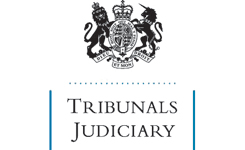|
Notes:
|
Reported as [2010] AACR 13
Retirement pension – male-to-female transgender persons obtaining gender recognition certificate after the age of 65 – whether subject to (i) reduction of additional pension to remove earnings factors accrued after age 60 and (ii) increase of pension for deferment – application of section 27 of the Social Security Act
The claimant was a male-to-female transgender person, who married while living as a man, but in March 1989 underwent gender reassignment surgery, and was divorced in 1992. The claimant continued to pay national insurance contributions until she attained the age of 65 in 1998, and was paid state retirement pension from that date, consisting of both the basic and an additional (earnings-related) element, calculated on the footing of her entitlement as a man. On 25 August 2006 a gender recognition certificate under the Gender Recognition Act 2004 was issued to her and on 27 September 2006 the Secretary of State made a supersession decision reducing the additional element of the pension with effect from 25 August 2006 on the ground of a change of circumstances, namely the issue of the gender recognition certificate. The decision-maker considered that that reduction was required by paragraph 7(1) of Schedule 5 to the 2004 Act, which provides that the amount of pension to which a person is entitled for any period after the certificate is issued shall be decided “as if the person’s gender had always been the acquired gender”. The decision-maker reasoned that, had the claimant been a woman throughout, she would not have continued to pay national insurance contributions between the ages of 60 and 65 and earnings factors for those years would not have been taken into account in determining the amount of her additional pension. The claimant appealed to an appeal tribunal, which dismissed her appeal. The claimant appealed to the Social Security Commissioners. In November 2008, while her appeal was still pending, she received a refund of the national insurance contributions which she had paid between the ages of 60 and 65. The claimant’s appeal was eventually heard by a judge of the Upper Tribunal (Administrative Appeals Chamber), to which the functions of the Commissioners had been transferred.
Held, allowing the appeal, that:
1. the issue whether the additional element of the claimant’s pension should be reduced, on the ground that her contributions and earnings factors between the age of 60 and 65 could not be counted, fell within the exception in paragraph 7(4)(a) of Schedule 5 to the 2004 Act and therefore paragraph 7(1) did not apply and the application of EC law did not require an overriding of domestic law, and so the decision of 27 September 2006 reducing the claimant’s pension was wrong (paragraphs 38 and 71);
2. paragraph 10 of Schedule 5 to the 2004 Act did not provide for an increase of basic pension on the basis of deferment as the condition in paragraph 10(a) that entitlement was actually deferred for any period ending before the gender recognition certificate is issued could never be satisfied for any period where a transgender person is aged between 60 and 65 (R(P) 2/09 followed) (paragraphs 39 to 42);
3. on the basis of domestic law alone, there was no basis for refunding the claimant’s contributions, since the rationale for the refund was that her pension had to be recalculated in order to ignore earnings factors accrued between age 60 and 65, and if no such recalculation was required, there was no basis for refunding the contributions and the correct decision would have been that the claimant’s pension was neither to be reduced (owing to the notional loss of earnings factors) nor increased (for deferment) from that date (paragraphs 43 to 45);
4. however, the claimant was entitled, as was the claimant in R(P) 2/09, to an increase of basic pension on the basis of deferment by virtue of her right to equal treatment under Council Directive 79/7 EEC following CP/428/2004, which gave effect to the judgment in Richards v SSWP [2006] ECR 1-3585 (also reported as R(P) 1/07) and, the relevant decision being that of 27 September 2006, before the decision in CP/428/2004 was made, section 27 of the Social Security Act 1998 did not operate to prevent the decision being in error of law (paragraphs 46 to 54);
5. the Secretary of State’s submission that no decision fell to be made applying the claimant’s rights under the Directive unless and until the claimant had unequivocally elected to rely on those rights was wrong and Criminal Proceedings against Kolpinghuis Nijmegen [1987] ECR 3969 was to be distinguished form the present case, where the application of the claimant’s rights under the Directive on 27 September 2006 would have resulted in a deferment increase and would have been to the claimant’s overall advantage (paragraphs 55 to 60);
6. section 27(1)(b)(iii) refers to a decision made “on an application made under section 10 above for a decision as to a person’s entitlement to benefit to be superseded”, so that a decision taken on the Secretary of State’s own initiative, whenever made, would not fall within section 27 (paragraph 61);
7. section 27 applies “in so far as the decision relates to a person’s entitlement to a benefit in respect of a period before the date of the relevant determination” and those words are not apt, in the context of the purpose of section 27, to include “entitlement” for the purpose solely of determining whether, in relation to pension entitlement during a subsequent period, there should be an increase for deferment (paragraphs 63 to 65);
8. the refund of contributions was made on the basis of a mistaken view of the law and could not have been a ground for superseding and reducing the claimant’s pension entitlement (paragraph 84).
|
